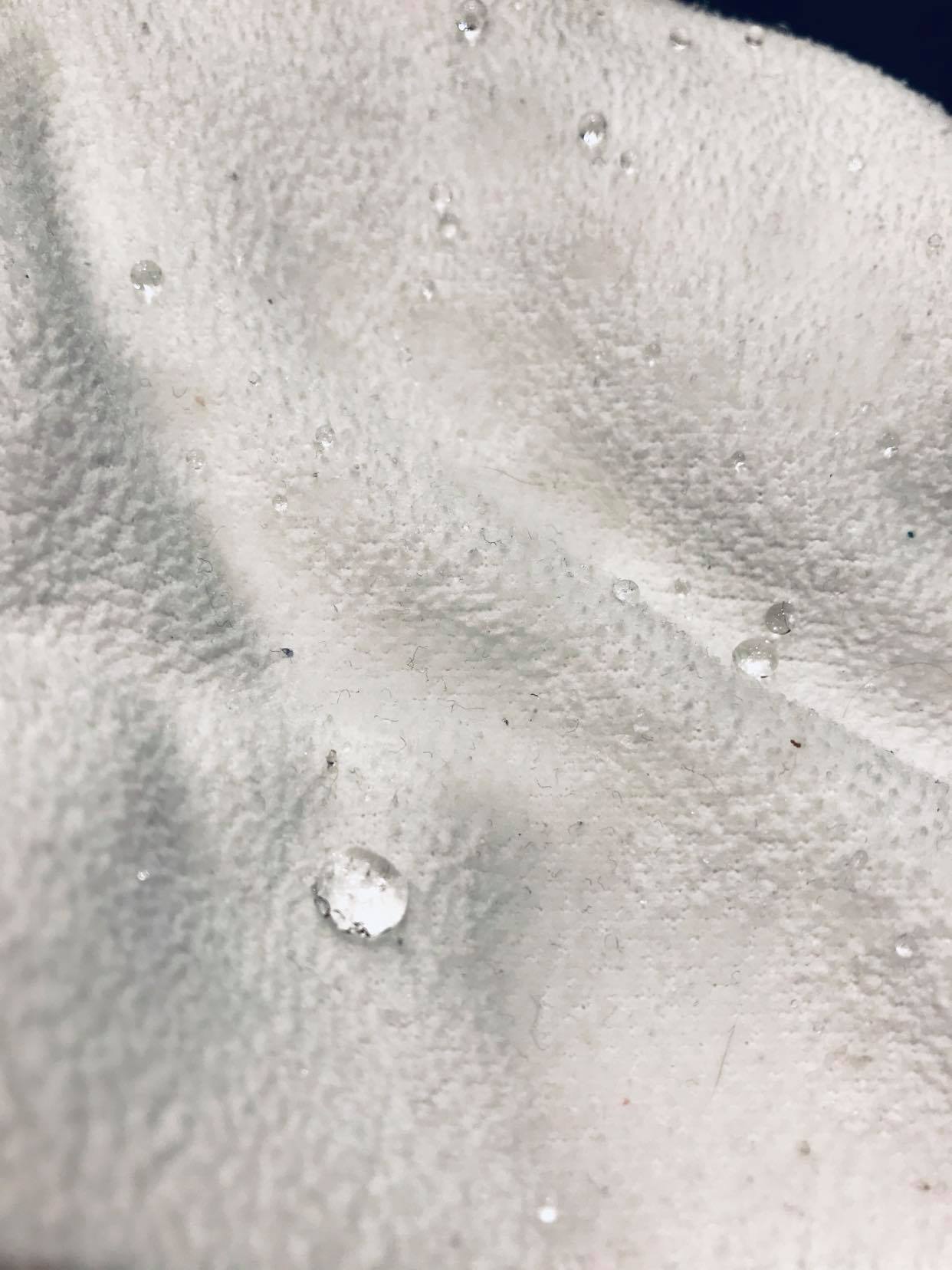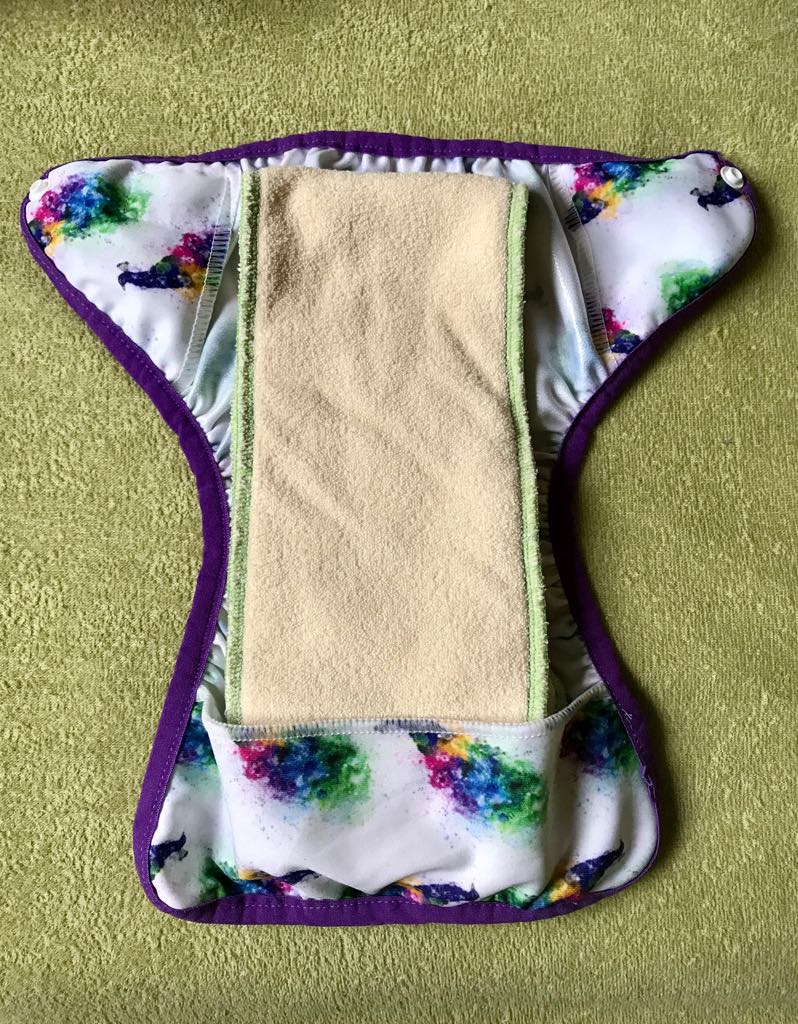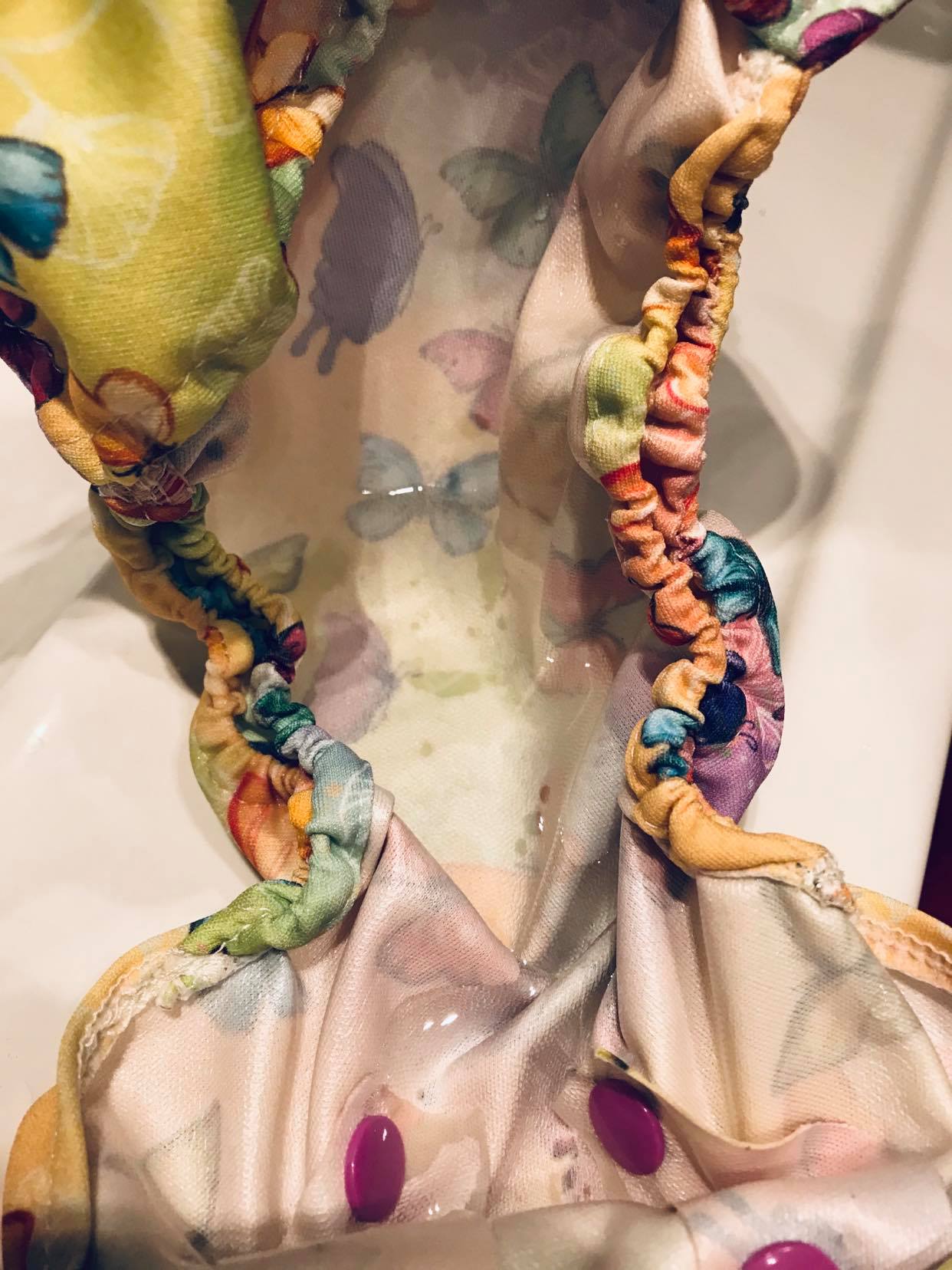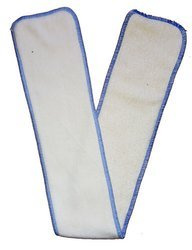Why do reusable diapers leak? (sometimes:)

We sometimes receive e-mails from you asking: Why diapers, that worked perfectly, suddenly started to leak?
There are some of the most common reasons
- Your child is teething
I am listing this first, although it may surprise you :) Teething children want to be breastfed more often, as it soothes them. In the rush of everyday duties, you may not even notice this. I know how it is – the baby demands to be breastfed, so I feed them for a few minutes and that's it. So the reason is simple – babies drink more = they pee more. During teething, you just need to change their diapers more often. - Incorrectly fitted diaper
- The insert or material may be sticking out somewhere, which can cause leaks. Check on all sides to make sure that the cover completely covers the insert or form-fit diaper.
- It is also worth checking whether the diaper is fastened tightly enough – after fastening the diaper on the child, check whether you can fit two fingers in front of the tummy (as with a disposable diaper). If there is too much slack, fasten it tighter.
- We also pay attention to the length adjustment – the tighter the diaper is fastened lengthwise, the less slack there is in the armpits and the better the diaper fits and seals. Of course, we adjust the fit to the child's size to ensure their comfort, while at the same time ensuring that the elastic bands in the diaper fit snugly against the body.
How to put on diaper properly? Click here
3. The microfleece inserts or pockets have become greasy.
What could be causing this?
- -Washing powder/liquid containing >5% soap or soap flakes.
- -Soap nuts.
- -Residue from fabric softener left in the washing machine, even if you only use it for clothes.
- -optical brighteners
- -too much washing powder/liquid, resulting in diapers not being rinsed properly
- -hand washing
- -diaper creams/body lotions/oils that settle on synthetic materials and are difficult to rinse out
Fortunately, diaper grease is reversible. Just knead them in hot water with dish soap and leave them overnight.
Most of you know how to wash diapers, but I've had a few situations where a customer insisted that the diapers weren't greasy, that she hadn't changed her detergent, and then when she sent the diapers to us, it turned out that they were greasy after all. All we had to do was strip them (i.e., give them a thorough cleaning – instructions here) and everything was back to normal. How can you check if diapers are greasy? Pour a little water on a washed, dry diaper. The water should immediately soak into the insert/diaper. If water droplets float on the surface of the insert or pocket, this is greasiness. Remember that greasiness only affects synthetic materials such as microfiber, microfleece, and Coolmax. Bamboo, hemp, and cotton do not become greasy!
*As for greasing the fleece, this phenomenon does exist, but it can only affect the vapor permeability of the diaper and make it more leak-proof.

Photo of greased microfleece
4. The baby has grown...
...and it's time for new, larger ones! Usually, during the first months of life, it was enough to put one insert in the pocket or cover diaper. However, when we switched from newborn diapers to one-size diapers, I quickly decided to use a combination of a standard insert and a newborn insert – the latter placed at the front, where both my son and two daughters peed more. This combination can last a really long time.
Recently, our store has started selling very absorbent long inserts – I highly recommend them for all children with large bladders :)

5. Tightness of the diaper
In case of leaks, it is also worth checking the tightness of the diaper covers and pockets. To do this, pour water inside and check if there are any leaks.

6. The elastic bands have stretched
The elastic in diapers can be damaged by improper washing – at too high a temperature, spun at too high a speed, or dried on a hot radiator/in direct sunlight/in a tumble dryer, or when hanging diapers vertically – this overloads the elastic. The elastic bands in diapers can also stretch on their own when we haven't used diapers for several years – this is referred to as the elastic bands “stretching out,” becoming less elastic, which can cause leaks. Fortunately, the elastic bands in diapers can be replaced. Therefore, you should consider whether it is worth keeping all diapers with elastic bands for your next child, or putting them into circulation so that the elastic bands do not become brittle from lying in the closet ;-) Or maybe just keep your favorites?
If you've checked these 5 things and the diapers are still leaking, write to me or give me a call.
Even the best diapers can leak occasionally.
Recommended

